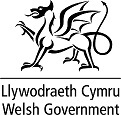Request for Views on the Agriculture and Horticulture Development Board
Results updated 20 Apr 2020
We received 901 responses to this request for views. A summary of views and governments response was published in April 2020. We will work with AHDB and stakeholders to put in place the proposed changes. This includes:
- introducing a five year ballot
- updating the governance structure
- prioritising AHDB activity on market development and improving farm performance
Links:
Overview
The Agriculture and Horticulture Development Board (AHDB) is a UK statutory levy body, funded by farmers, growers and others in the supply chain. It delivers some important services to various industry sectors and parts of the UK.
We are seeking your views to help us examine the continuing need for AHDB and the statutory levy, and what the levy board should deliver. We want to hear views from levy payers and non-levy payers in the UK.
The request for views is open for 10 weeks until the 9th November 2018. We will consider all responses received before midnight on 9th November. A summary of responses will be produced early in 2019.
Please give your views online using the link at the bottom of this screen.
If you are unable to respond online, then please see the related links below to print a copy of the survey (PDF), or if you prefer to use a response form (available in OpenDocument format). The documents are available in English and in Welsh and contain the postal address for returning your response if required.
Or you can request a copy of the survey by emailing ViewsonAHDB@defra.gsi.gov.uk.
Please send queries or requests for a more accessible format of the survey to ViewsonAHDB@defra.gsi.gov.uk indicating the format you require, and the assistive technology that you use.
Why your views matter
AHDB has existed for ten years during which time the industry and the wider world have undergone some significant changes, and AHDB has become a more joined-up, strategic and efficient body. Change is set to continue.
Earlier this year in England a consultation paper 'Health and Harmony: the future for food, farming and the environment in a Green Brexit' set out a range of possible paths to a brighter future for English farming. Scotland has recently published its 'Future Strategy for Scottish Agriculture' and launched a public consultation 'Stability and Simplicity: Proposals for Rural Funding Transition'. On 10th July the Welsh Government launched its formal consultation 'Brexit and our land: Securing the future of Welsh farming'. In Northern Ireland, the Department of Agriculture, Environment and Rural Affairs (DAERA), with the co-operation and input from a broad range of stakeholders across the food, farming and environmental sectors, has developed a possible policy framework to help shape the debate on future support arrangements. That paper will form the basis of a broader engagement with stakeholders by DAERA later this year.
Across the UK we want agriculture and horticulture to flourish as competitive, highly skilled, high investment industries.
What happens next
We will consider all responses received before 9th November and will produce a summary of responses early in 2019.
Audiences
- Abattoir Operator
- Agricultural Landlords
- Agricultural Valuers
- AWBs
- Devolved Administrations
- Farmers
- Food Business Operators
- Food Industry
- Horticulture Industry
- Livestock show ground operators
- Tenant Farmers
Interests
- Animal welfare
- Animals
- Biodiversity
- Cattle
- Common Agricultural Reform (CAP)
- Dairy industry
- Egg industry
- Environmental Stewardship
- Farm management
- Food and drink exports
- Food imports
- Food labelling
- Food standards
- Genetic Modification (GM)
- Growing and crops
- Industry organisations representing tenant farmers and landlords
- Land management
- Livestock disease control
- Livestock identification and movement
- Local nature partnerships
- Meat Industry
- Natural environment
- Pigs
- Plants
- Poultry
- Poultry industry
- Sheep and goats
- Sheep, goat and deer production/marketing
- Skills, education, training and new entrants
- Soil
- Sustainable development
- Tree and plant health
- Uplands
- Wine industry




Share
Share on Twitter Share on Facebook